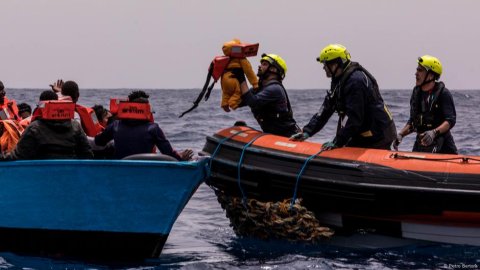Understanding the Challenges of Migration Rescue Efforts
The ongoing migration crisis continues to pose significant humanitarian challenges, particularly in the Mediterranean region. Despite the efforts of rescuers who tirelessly work to save lives, political apathy has emerged as a significant barrier, hindering effective response strategies. This article delves into the implications of this lack of political support and examines how it affects rescue operations.
The Humanitarian Crisis at Sea
In recent years, the Mediterranean Sea has become a perilous route for migrants fleeing war, persecution, and poverty. Many embark on this treacherous journey in search of safety and a better life. Tragically, numerous lives are lost as overcrowded and unseaworthy vessels capsize.
Rescue organizations play a critical role in preventing these tragedies. They operate under challenging conditions, often facing hostility and bureaucratic hurdles. The dedication of these teams is commendable, yet their efforts are severely undermined by the absence of robust political backing.
The Role of Rescuers
Rescue organizations are made up of various groups, including non-governmental organizations (NGOs) and volunteer networks. Their primary focus is to:
These organizations have saved countless lives, yet their operations are increasingly hampered by restrictive policies and mounting political pressure.
The Political Landscape
The political atmosphere surrounding migration has become increasingly polarized, with many governments adopting a deterrent approach to discourage migration. This has led to a significant reduction in support for rescue missions.
Reasons for Political Apathy
Several factors contribute to the observed political apathy regarding migration rescue efforts:
These factors create a challenging environment for those dedicated to saving lives at sea.
The Impact of Political Apathy on Rescue Operations
The lack of political support not only affects funding but also has broader implications for the safety of both migrants and rescuers.
Operational Challenges
Without governmental backing, rescue organizations face multiple challenges:
As a result, the capacity to respond effectively to emergencies diminishes, leading to tragic outcomes.
The Need for Political Commitment
Addressing the migration crisis requires a comprehensive approach that includes strong political will. Governments must recognize their responsibility to protect human rights and ensure the safety of those fleeing perilous situations.
Steps Towards Improvement
To enhance rescue efforts, political leaders can take several actionable steps:
By committing to these actions, governments can help create an environment where rescue operations can flourish.
International Cooperation as a Solution
The migration crisis is a global issue that necessitates collaborative efforts. International partnerships can bolster rescue operations and provide a unified response to the challenges posed by migration.
Global Frameworks
Engaging in international agreements and frameworks can help address the root causes of migration while ensuring the safety of those on the move. Some potential avenues for cooperation include:
Through international cooperation, the complexities of the migration crisis can be tackled more effectively.
Conclusion
The challenges faced by rescuers in the migration crisis highlight the urgent need for political commitment to humanitarian efforts. As long as political apathy prevails, the lives of migrants and the dedication of rescue organizations remain at risk.
By fostering a culture of compassion and responsibility, governments can pave the way for more effective rescue operations, ultimately saving lives and restoring hope for those seeking refuge. The time for action is now, and it requires a united front to address the humanitarian crisis at sea.










